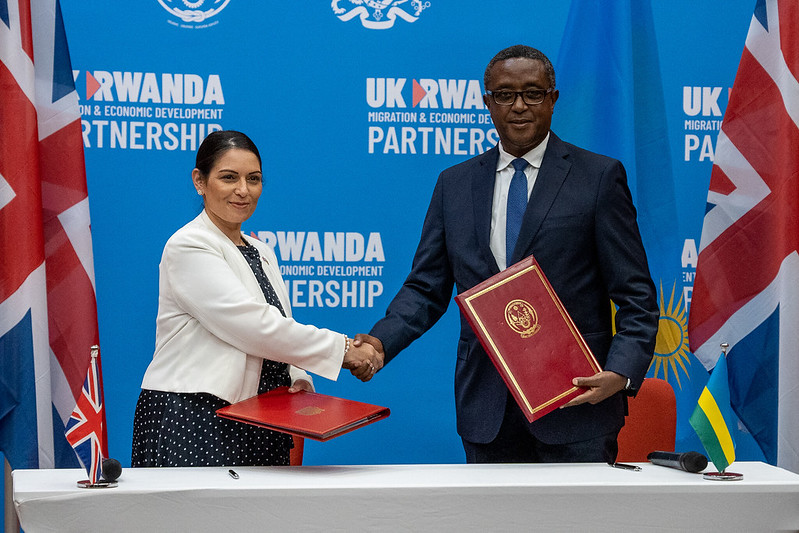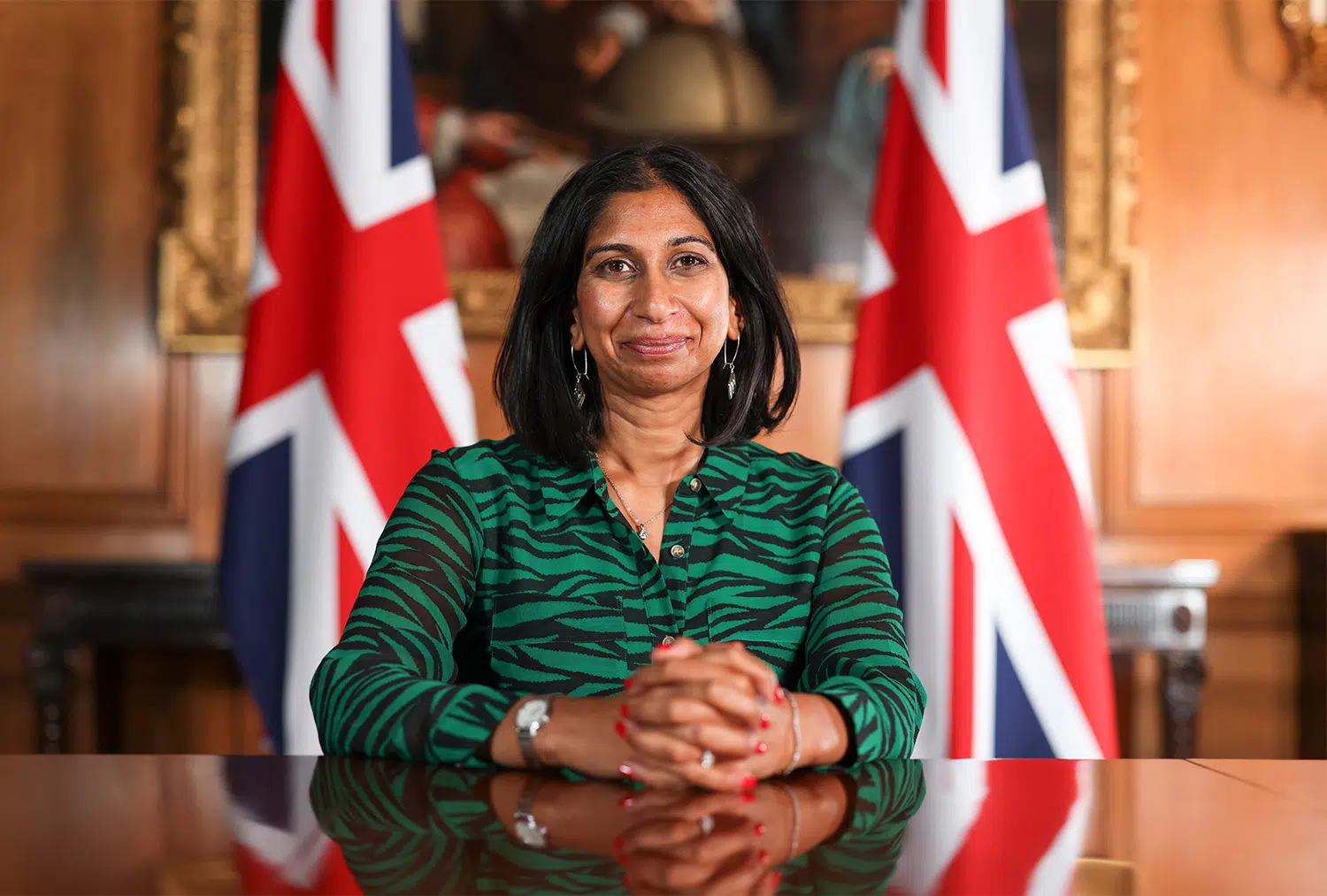LeftFootForward
Some recent stories from the excellent Left Foot Forward blog
UK workers ramp up pressure on Big Tech to end Israeli military contract
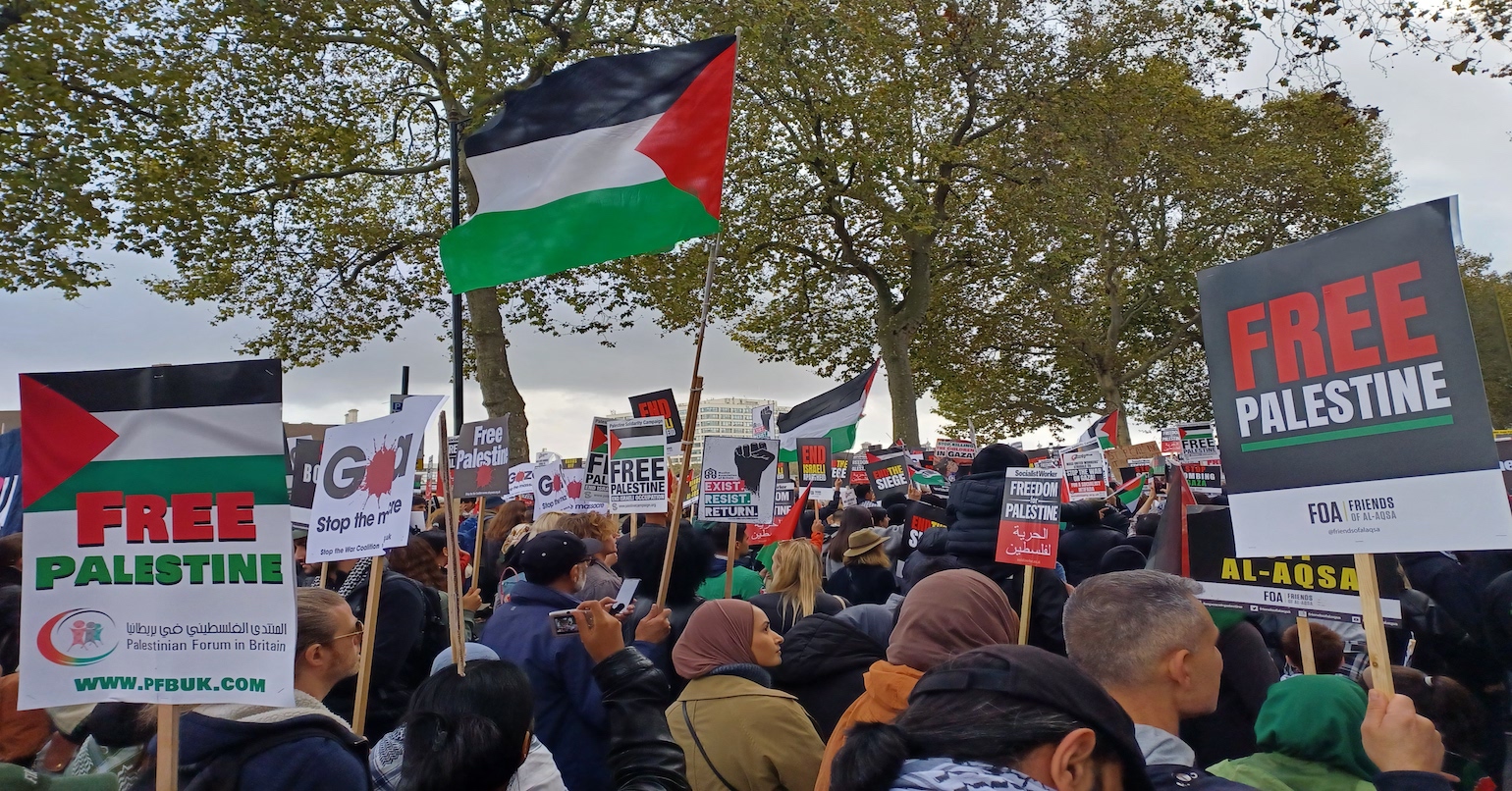
Tech workers launch UK campaign and mass call to action against company complicity with Israeli government
Tech workers in the UK have ramped up a campaign calling on Google and Amazon to terminate an AI contract with the Israeli government arguing it constitutes a breach of the companies core values.
Project Nimbus is a $1.2 billion contract signed by Google and Amazon to provide cloud technology to the Israeli government and military. Workers have been campaigning against it since the contract was initially signed in 2021.
Opposition has ramped up since the latest Israeli military attacks on Gaza, following the Hamas attacks and kidnaps on October 7 when 1,200 people were killed, and now with more than 15,000 Palestinians, including 6,000 children, killed by Israeli bombing.
One Google employee said: “The images we see over and over again are of hi-tech military bombardment directed at a civilian population.
“Tech workers built Israel’s capacity for this and it’s our responsibility to get tech companies to stop doing business with Israel as long as it commits war crimes and genocide.”
…
Young audience members perfectly sum up attitudes towards government’s immigration policies on Question Time
‘We should welcome these people.’
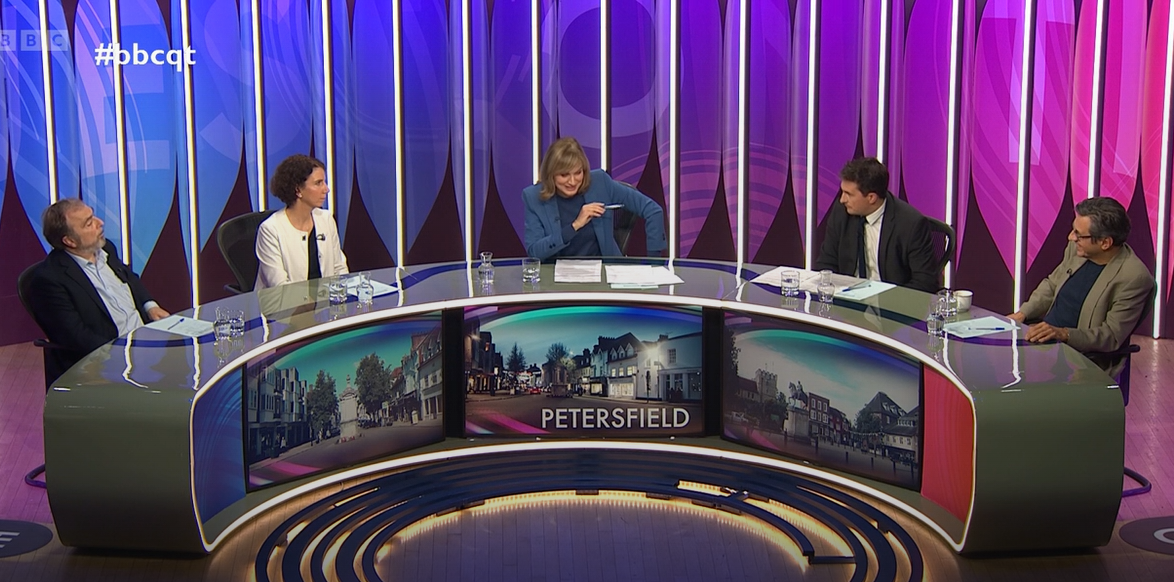
Following Sunak’s desperate defence of his latest plans to send asylum seekers to Rwanda during an emergency press conference, debate on this week’s Question Time was focused on the beleagured deportation deal.
…
During the heated discussion on the Rwanda policy and immigration, a young man in the audience managed to sum up in a sentence how many people feel about the way Britain should treat people coming to the UK to flee persecution.
He said: “I would like to ask a Conservative member of the Cabinet. Rather than blame these poor people that are coming over being exploited and threatened with deportation to what has been ruled as an unsafe country, why can’t we rather open up more legal safe routes and options for these people to flee persecution or any trouble they’re going through, to come to a safe country like the United Kingdom, we should welcome these people.”
The comment was met by an enthusiastic applause from the audience.
…
A young woman in the audience then asked the panel: “Previously you mentioned British values. How do you think that the Rwanda scheme complies with the tolerance that Britain is supposed to stand for?”
Later in the programme, another young member of the audience received applause when he stated: “Illegal migration makes up 5 percent of the total migration to the country, I think Rwanda is just used as a distraction from your failings.”
…
Cost of Rwanda scheme spirals to £290m despite no deportation flights taking off
‘The Tories’ have wasted an astronomical £290 million of taxpayers’ money on a failing scheme which hasn’t sent a single asylum seeker to Rwanda.’
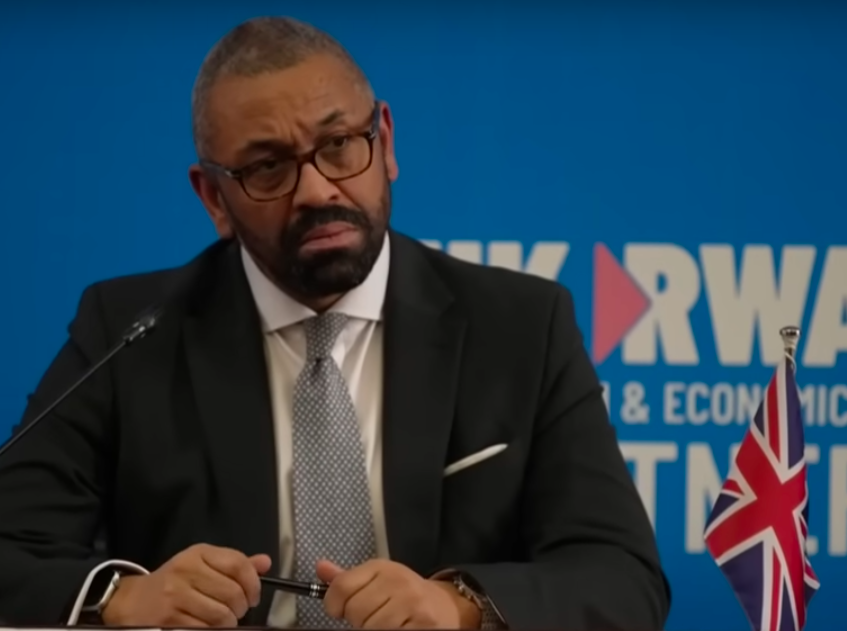
The cost of the government’s Rwanda deportation scheme, which has been ruled unlawful by the Supreme Court, has more than doubled to £290 million, despite the fact that not a single deportation flight has taken off.
The latest costs of the scheme were revealed overnight, with the prime minister signing off on a £100m payment to the east African nation this year, on top of the £140m already spent on the policy.
The Home Office has pencilled in another £50m payment next year as the plan hangs in the balance.
Labour has condemned the waste of taxpayers’ money, with Shadow Home Secretary Yvette Cooper saying: “This is just incredible. The Tories’ have wasted an astronomical £290 million of taxpayers’ money on a failing scheme which hasn’t sent a single asylum seeker to Rwanda.
“How many more blank cheques will Rishi Sunak write before the Tories come clean about this scheme being a total farce?”
…
John McDonnell MP: ‘Rwanda deportation scheme is an appalling act of inhumanity’
Figures show that the cost of the scheme has spiralled to £290 million, despite the fact that not a single flight has taken off to the east African country.
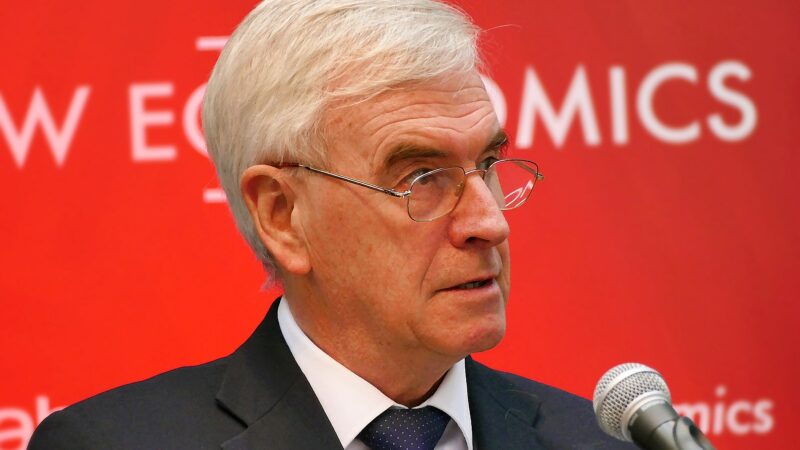
Labour MP John McDonnell has slammed the Rwanda deportation scheme as an ‘appalling act of inhumanity’, as the government made clear its intention to push ahead with the policy despite the Supreme Court ruling that it was unlawful.
…
McDonnell has called the bill the ‘most bizarre & brutal legislation we have seen in years’, adding: “Bizarre by arguing that making a law that says Rwanda is safe can change the reality of all the evidence pointing to the opposite. Brutal by forcing refugees into more insecurity & potential danger.”
He told LFF today that the deportation scheme was ‘an appalling act of inhumanity.’
He said: “The massive cost of the Rwanda scheme demonstrates how much the Tories are willing to spend on brutalising people who have already endured such hardship and human suffering in their flight to secure safety and security. It’s an appalling act of inhumanity.”
…
Yet more bus services will be coming back into public ownership
A recent poll for LFF found that 67% of the public want to see buses in public ownership.
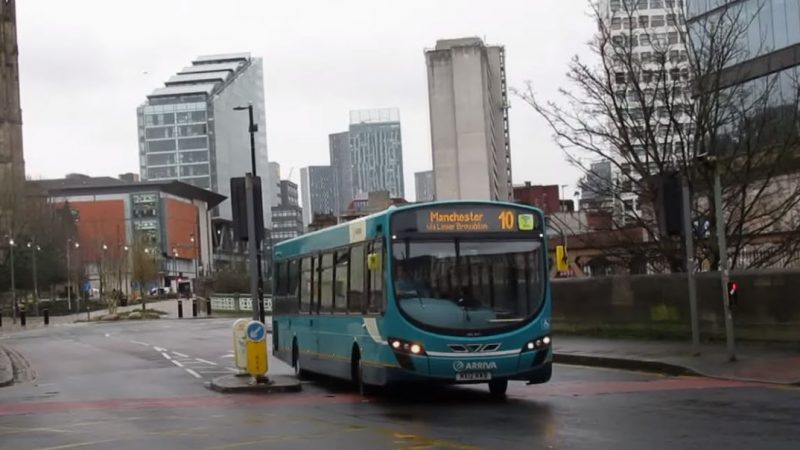
After the failures of privatisation, yet more bus services are expected to be brought back under public control.
The Mirror reports that ‘moves are afoot for local authorities to regain powers for setting fares and routes. Areas seeking change include West Yorkshire, where a consultation ends a month today with a decision due in March.’
A recent poll for LFF found that 67% of the public want to see buses in public ownership.
Greater Manchester was the first English region to take back ownership of its bus services. The Mayor Greater Manchester praised the move earlier this year. He said: “For nearly 40 years we have seen worsening services and plummeting passenger numbers on our buses.
“We’ve had to reckon with a deregulated bus network that cuts vital services that connect communities to jobs, hospitals and opportunities on a whim – leaving local leaders with limited budgets to pick up the tab to keep these routes alive.
…
Shocking chart shames Britain on child poverty record
The report compiled by UNICEF compared relative income poverty rates, which means the proportion of people who fall below a threshold relative to the income of the average person in the population.
A shocking chart produced by UNICEF shows the UK’s appalling record on child poverty, with the country having the worst rise in child poverty between 2012 and 2019 out of 39 of the world’s richest countries.
The UK has seen a 20% increase in child poverty since 2014 – the steepest rise among the 39 wealthiest OECD & EU nations. With the UK at the bottom of the table, Iceland was next worst with a significantly lower rise of 11%, while France had a 10.4% rise.
Other countries meanwhile had cut their child poverty rates, with Poland topping the table after cutting its child poverty rate by 37.6%, with Slovenia achieving a 31.4% reduction.
The report compiled by UNICEF compared relative income poverty rates, which means the proportion of people who fall below a threshold relative to the income of the average person in the population.
…
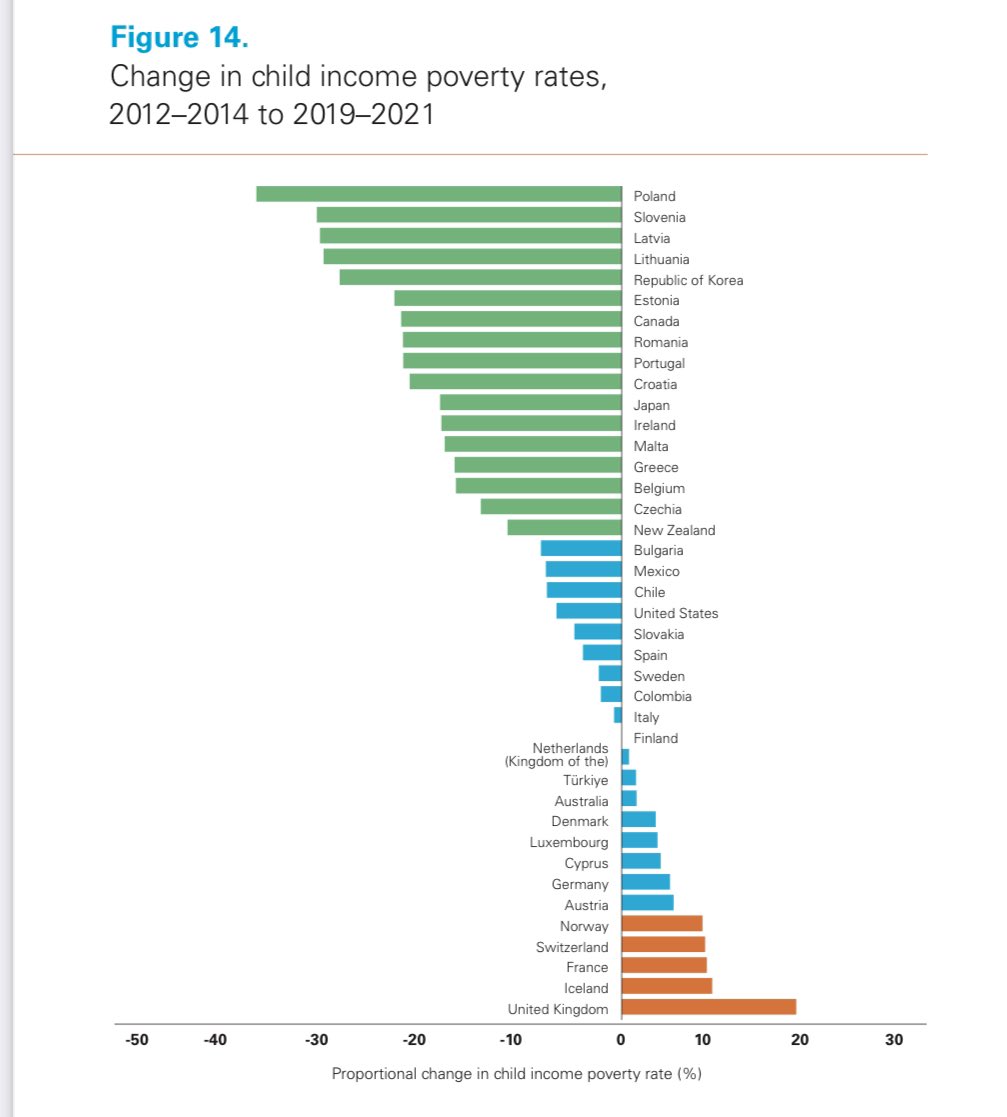
…
